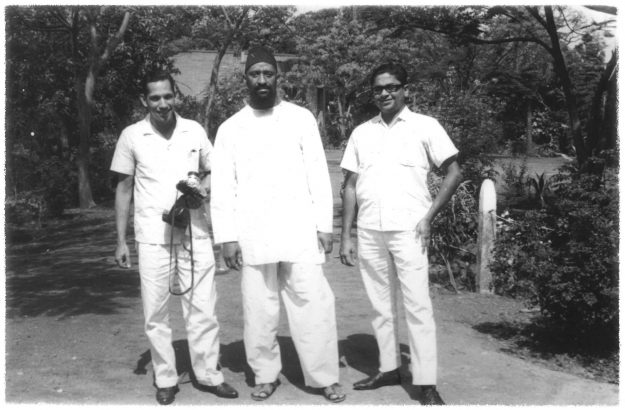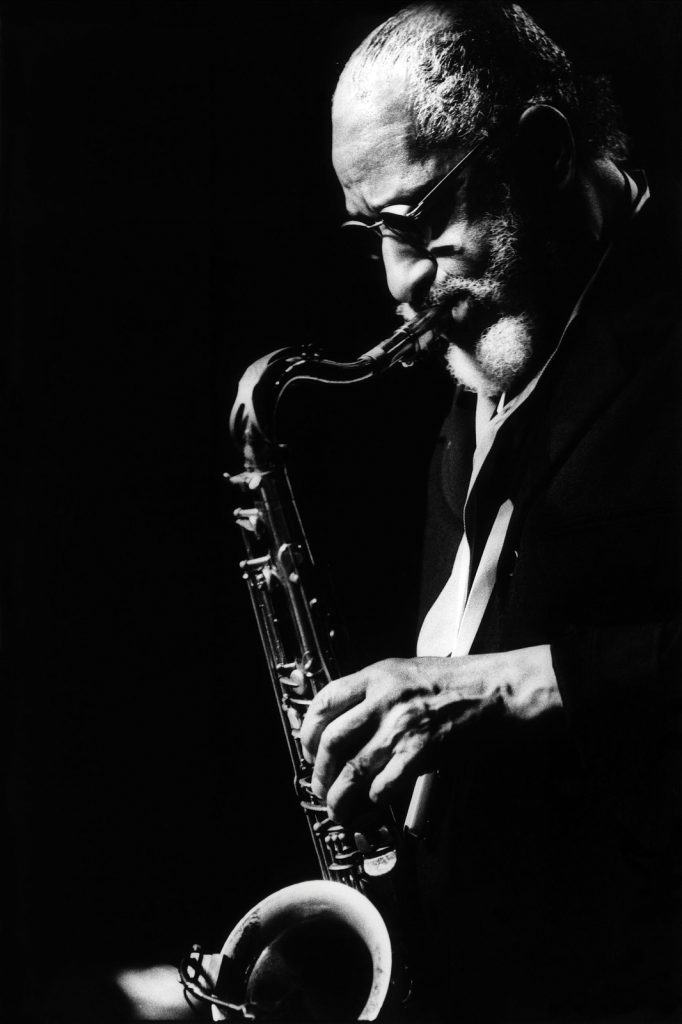When Theodore Walter “Sonny” Rollins traveled to Japan in the mid-1960s—the first of several journeys the iconic jazz musician would take to East and South Asia to study yoga, meditation, and Eastern philosophy—he’d already seen enough peaks and valleys to fill a lifetime. In the two decades prior, Rollins had become renowned in his hometown of New York City for his distinctive improvisations on the tenor saxophone, but in that same period he served a ten-month jail term for armed robbery and spent years battling a heroin addiction. One of the jazz greats who found support in meditation and Eastern thought (along with John and Alice Coltrane, Wayne Shorter, and Herbie Hancock, to name a few others), Rollins forged an eclectic spirituality informed by Buddhism, Hinduism, the Moravian Church of his youth, and even Egyptology.
Around fifty years later—some forty more albums, a Grammy Lifetime Achievement Award, a National Medal of Arts from President Barack Obama, and a Kennedy Center Honor under his belt—Rollins, 89, lives a quiet life in retirement in New York’s Catskill Mountains. In anticipation of a new album of previously unissued recordings to be released by Resonance Records this fall, Tricycle spoke with the celebrated artist for a retrospective on his life and music.
Do music and spirituality overlap for you? Well, I hope so. Playing the saxophone put me into a very spiritual area, but I wasn’t really aware of it until I began getting interested in yoga. Then I realized they’re a part of the same thing.
What is that thing? What does spirituality mean to you? It means something that’s not seen but felt. Something I feel, but I don’t know what it is. And it’s something very different from living life. When I think about spirituality, it elevates me from the things that I have to go through in life.
I’ve often heard musicians talk about the experience of transcending their sense of self at the height of a live performance, but you have also said that there is an ethical dimension to this experience. How do you see the relationship between ethics and spirituality? They’re one and the same. I realize, though, that just because someone follows Buddhism or any other religion, that doesn’t necessarily mean they’re an ethical person. I’ve heard about a lot of people who are supposed to be “religion-ist” in other religions, whatever they might be, but they’re not necessarily what I would consider ethical people. When I look for ethical people, I look for people like Paramahansa Yogananda [author of Autobiography of a Yogi]. I’m very wary of those who don’t connect spirituality with ethical behavior.
Do you have a daily practice? I still read my books by Swami Vivekananda and Ramakrishna [19th-century Indian Hindu mystics] to this day, and I try to live by the Golden Rule. The Golden Rule has always been a thing for me. Every religion—Buddhism, Taoism, Confucianism, Christianity, Judaism, Islam, every religion that we know of—talks about it: Do unto others as you would have others do unto you.

Were you always able to follow that principle? I accept reincarnation, so I feel that when I came here on this ship, I was already inculcated with certain Golden Rule–type values. Now, that didn’t mean that I was going to embody them [right away]; I had to relearn them, if you will. Early on I was a person that had good values, but, of course, I had a rough life. I had to live a life in which I used and did some crazy things for drugs.
It’s one thing to love music, but to be a musician in that period of time, the 1930s, there were so many other social problems involved. Many of the people whose music I was attracted to were guys that were using drugs, and we thought, “Well, gee, let’s use drugs [too].” And then came the rough period.
Something happened one time when there was a girl that I was involved with who was a drug addict, too. She was also a prostitute. She once had this john, and after coming back from him, she said, “This guy’s got a lot of money up at his house.” Maybe three of us went up to his house and started beating him up trying to find his money. Just thinking back on that, I thought, “Wow, we could have killed that guy.”
I really got involved with drugs trying to live like one of my idols, but one time recording with him I got the message that the last thing he wanted was to have young guys like me following him into drugs.
Today, in retrospect, how do you regard that younger self? Well, this is where my appreciation of Buddha and spiritual practices really kicks in to the real world. I realized that there was something that I should be doing, and that was when I made my attempt to get away from drugs. It was hard, and once I got through the cure [a stay for four and a half months at a substance abuse rehabilitation center in Lexington, Kentucky], I had to contend with the temptation of people still wanting me to get back into it. I had to struggle, fight it, show some strength—and I did.
I was so anxious to see the fellow that was my idol, the musician, to let him know that I got his message, but he passed away a month or so before I got out of Lexington. Somewhere, somehow, I’m sure he knows what happened.
At 89 years old, you’re retired and for health reasons haven’t been able to play the saxophone since 2014. What are your goals now, and what challenges do you work with? To live by the Golden Rule, that’s my challenge.
I’m just progressing through life, able to evolve now and to realize that to really live in a spiritual way I have to be an ethical person. That, to me, is the way that we’re supposed to live. And since I accept reincarnation, I understand that each time I come through a consciousness, the point is to get closer to understanding and practicing this.
It’s so obvious now, but it takes time to understand it. So to answer your question: that’s what I’m doing now.
Thank you for subscribing to Tricycle! As a nonprofit, we depend on readers like you to keep Buddhist teachings and practices widely available.
